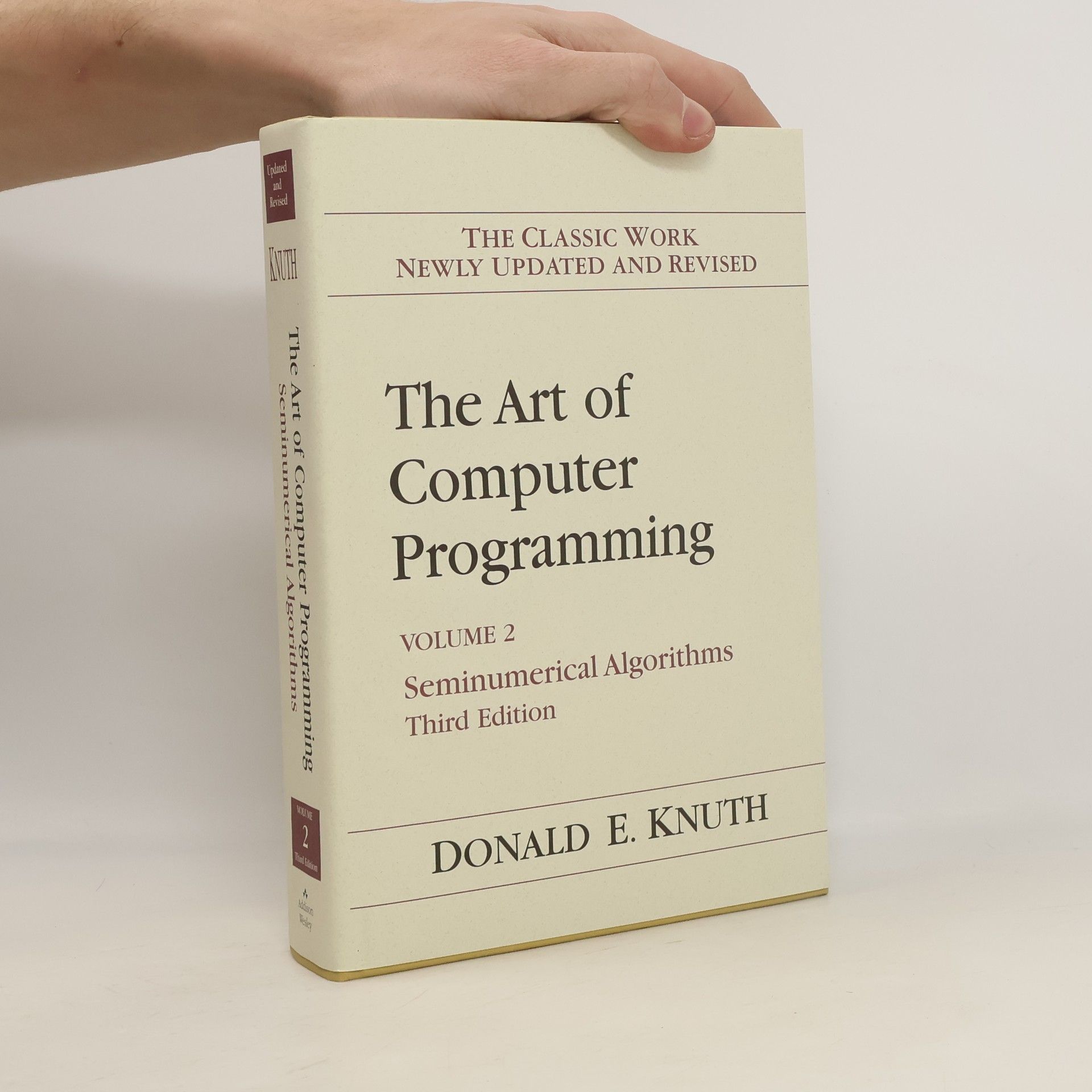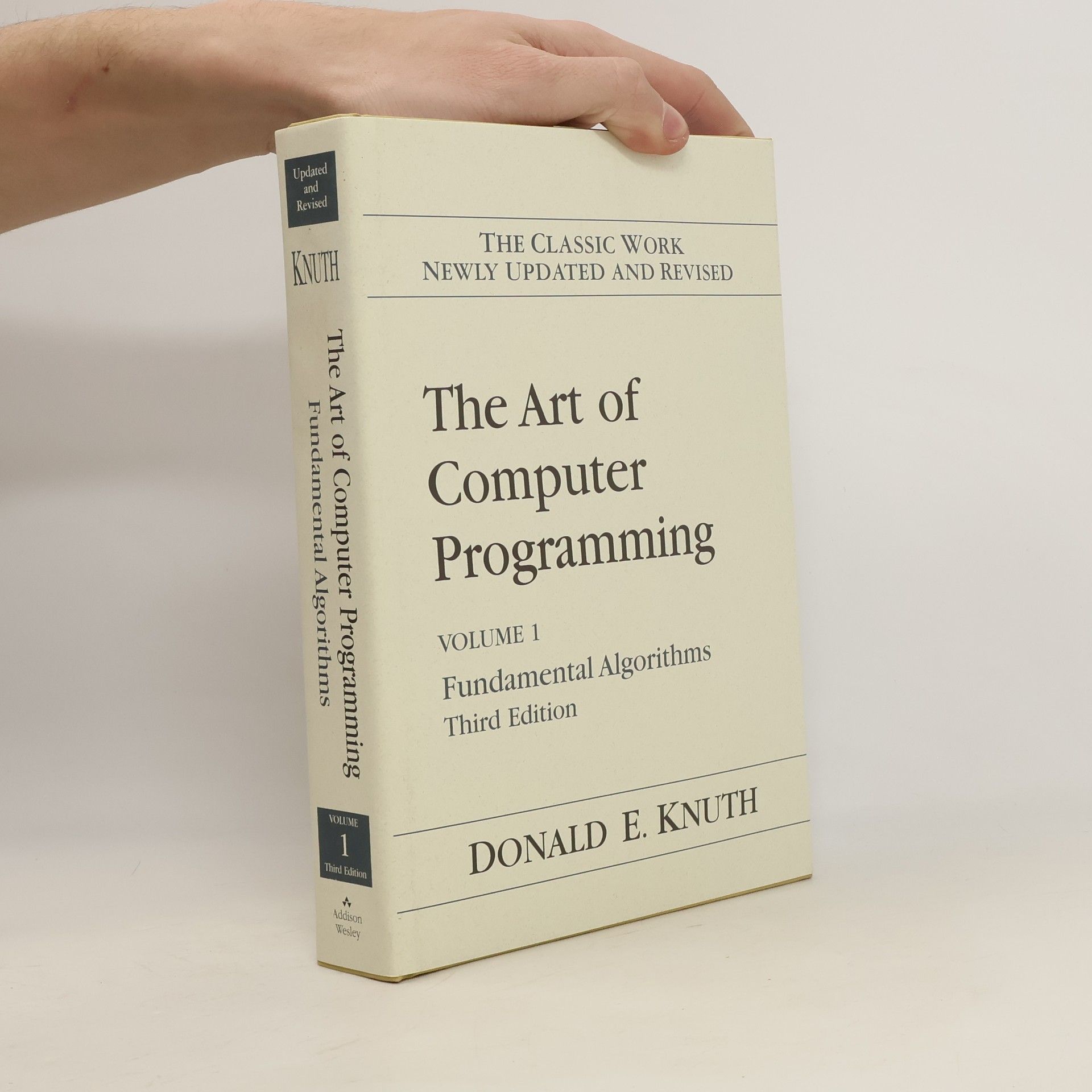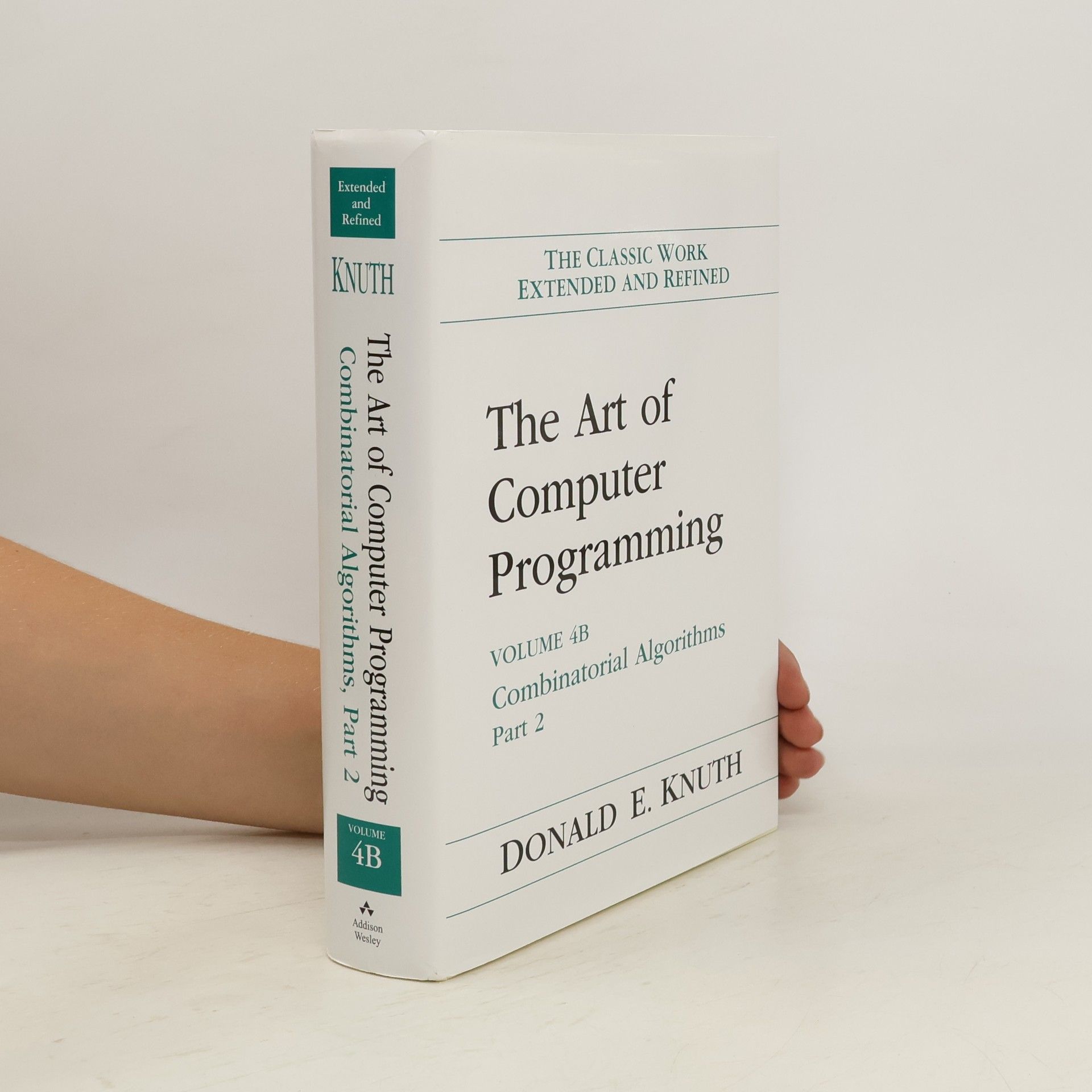The Art of Computer Programming, Volume 4, Fascicle 1
- 272bladzijden
- 10 uur lezen







To begin the fourth and later volume of the set, Knuth has created a series of small books called fascicles, which publish at regular intervals as they are ready. Each fascicle encompasses a section or more of wholly new material. Ultimately, the content of the fascicles will be rolled up into the comprehensive, final version of each volume.
The third volume comprises the most comprehensive survey of classical computer techniques for sorting and searching. It extends the treatment of data structures in Volume I to consider both large and small databases and internal and external memories.
The bible of all fundamental algorithms and the work that taught many of today's software developers most of what they know about computer programming. -Byte, September 1995 I can't begin to tell you how many pleasurable hours of study and recreation they have afforded me! I have pored over them in cars, restaurants, at work, at home... and even at a Little League game when my son wasn't in the line-up. -Charles Long If you think you're a really good programmer... read [Knuth's] Art of Computer Programming... You should definitely send me a resume if you can read the whole thing. -Bill Gates It's always a pleasure when a problem is hard enough that you have to get the Knuths off the shelf. I find that merely opening one has a very useful terrorizing effect on computers. -Jonathan Laventhol The first revision of this third volume is the most comprehensive survey of classical computer techniques for sorting and searching. It extends the treatment of data structures in Volume 1 to consider both large and small databases and internal and external memories. The book contains a selection of carefully checked computer methods, with a quantitative analysis of their efficiency. Outstanding features of the second edition include a revised section on optimum sorting and new discussions of the theory of permutations and of universal hashing. Ebook (PDF version) produced by Mathematical Sciences Publishers (MSP), http: //msp.org
Fundamental Algorithms
The bible of programming theory and practice is being updated for the first time in more than 20 years. The book is concerned with information structures--the representation of information within a computer, the structural interrelations between data elements and how to work with them efficiently, and applications to simulation, numerical methods and software design
Offers an introduction to the field of seminumerical algorithms, with separate chapters on random numbers and arithmetic. This book summarizes the major paradigms and basic theory of such algorithms, thereby providing a comprehensive interface between computer programming and numerical analysis, and a fresh treatment of random number generators.
The bible of programming theory and practice is being updated for the first time in more than 20 years. The book is concerned with information structures--the representation of information within a computer, the structural interrelations between data elements and how to work with them efficiently, and applications to simulation, numerical methods and software design
The bible of all fundamental algorithms and the work that taught many of today's software developers most of what they know about computer programming. – Byte , September 1995 I can't begin to tell you how many pleasurable hours of study and recreation they have afforded me! I have pored over them in cars, restaurants, at work, at home... and even at a Little League game when my son wasn't in the line-up. –Charles Long If you think you're a really good programmer... read [Knuth's] Art of Computer Programming... You should definitely send me a resume if you can read the whole thing. –Bill Gates It's always a pleasure when a problem is hard enough that you have to get the Knuths off the shelf. I find that merely opening one has a very useful terrorizing effect on computers. –Jonathan Laventhol The second volume offers a complete introduction to the field of seminumerical algorithms, with separate chapters on random numbers and arithmetic. The book summarizes the major paradigms and basic theory of such algorithms, thereby providing a comprehensive interface between computer programming and numerical analysis. Particularly noteworthy in this third edition is Knuth's new treatment of random number generators, and his discussion of calculations with formal power series.Ebook (PDF version) produced by Mathematical Sciences Publishers (MSP),
Concrete Mathematics is a blending of CONtinuous and disCRETE mathematics. "More concretely," the authors explain, "it is the controlled manipulation of mathematical formulas, using a collection of techniques for solving problems."
Focusing on the mathematical foundations necessary for algorithm analysis, this monograph integrates combinatorial analysis and complex variable theory. It presents essential techniques and major paradigms that enhance the understanding and precision of algorithm evaluation, making it a valuable resource for those studying algorithmic processes.